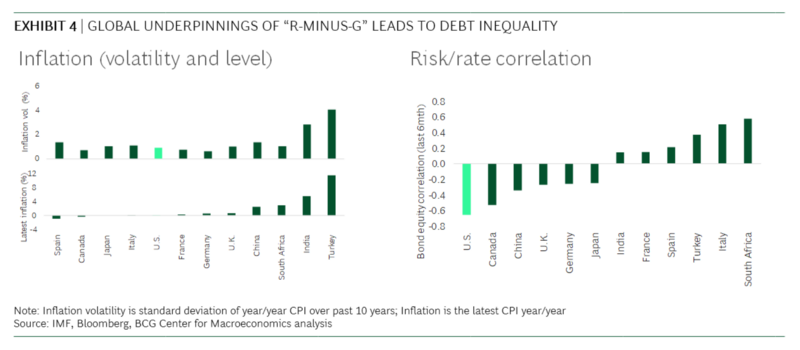Why Middle Managers Are Valuable: Benefits For Companies And Employees

Table of Contents
Enhanced Communication and Collaboration
Middle managers serve as a vital link between upper management and frontline employees, acting as a bridge for effective communication and collaboration. They are crucial for translating high-level strategic goals into actionable tasks for their teams. This clear communication ensures everyone is working towards the same objectives, fostering a sense of shared purpose and alignment.
- Translate strategic goals into actionable tasks for teams: Middle managers break down complex strategies into smaller, manageable steps, providing clarity and direction for their teams.
- Gather feedback from employees and relay it upwards: They act as a conduit for employee feedback, ensuring that the voices of frontline workers are heard by senior leadership. This two-way communication is essential for identifying problems, understanding employee needs, and implementing necessary changes.
- Resolve conflicts and foster teamwork: Middle managers are often the first point of contact for resolving interpersonal conflicts within teams. Their ability to mediate disputes and promote a collaborative work environment is invaluable.
- Improve cross-departmental collaboration: Effective middle managers facilitate communication and collaboration between different departments, breaking down silos and improving overall efficiency. They ensure projects run smoothly, despite involving multiple teams. This requires strong communication skills and an understanding of different departmental goals.
These communication and collaboration skills are essential for successful strategic alignment within any organization.
Improved Employee Performance and Engagement
Middle managers play a pivotal role in driving employee performance and engagement. They act as mentors, coaches, and motivators, fostering a supportive work environment that encourages growth and development. Their day-to-day interactions significantly impact employee morale and productivity.
- Provide regular performance feedback and guidance: Regular feedback sessions help employees understand their strengths and weaknesses, allowing them to improve their performance and reach their full potential.
- Offer training and development opportunities: Middle managers identify skill gaps within their teams and advocate for training and development opportunities that enhance employee capabilities and career progression.
- Recognize and reward employee achievements: Acknowledging individual and team accomplishments boosts morale and motivates employees to continue performing at a high level. This can include both formal and informal recognition strategies.
- Create a positive and supportive work environment: Middle managers set the tone for their teams. A positive and supportive work environment fostered by effective managers directly impacts employee job satisfaction and retention.
- Boost employee morale and job satisfaction: By creating a culture of appreciation and support, middle managers contribute significantly to overall employee well-being.
Investing in employee engagement initiatives, guided by skilled middle management, pays significant dividends in terms of performance and loyalty.
Increased Productivity and Efficiency
Effective middle management is essential for streamlining workflows and optimizing resource allocation, leading to increased productivity and efficiency across the organization. Their ability to delegate tasks effectively, monitor progress, and identify areas for improvement is crucial for achieving organizational goals.
- Implement efficient work processes and procedures: Middle managers analyze workflows, identify bottlenecks, and implement improvements to optimize efficiency.
- Delegate tasks effectively to team members: Proper delegation ensures that tasks are assigned to the most appropriate individuals, maximizing efficiency and productivity.
- Monitor progress and identify areas for improvement: Regular monitoring allows middle managers to proactively address challenges and ensure projects stay on track.
- Ensure that resources are used efficiently: Middle managers play a key role in allocating resources effectively, ensuring that teams have what they need to succeed without unnecessary waste.
- Track key performance indicators (KPIs) and report progress: Monitoring KPIs allows middle managers to track progress toward goals and identify areas needing attention, providing valuable data for upper management.
Workflow optimization and resource allocation directly impact the bottom line, making the role of middle management crucial for achieving productivity gains.
Reduced Turnover and Improved Retention
Supportive middle managers play a critical role in reducing employee turnover and improving retention. By addressing employee concerns, fostering a sense of community, and providing opportunities for career advancement, they create an environment where employees feel valued and appreciated, leading to increased loyalty and commitment.
- Address employee concerns and resolve issues proactively: Middle managers act as a buffer between employees and upper management, addressing concerns and resolving issues before they escalate.
- Foster a sense of belonging and community within the team: Building strong team dynamics and a sense of camaraderie increases employee engagement and reduces the likelihood of turnover.
- Promote work-life balance initiatives: Supporting employees in maintaining a healthy work-life balance demonstrates care and concern, fostering loyalty and reducing stress.
- Provide opportunities for career advancement: Middle managers identify high-potential employees and create opportunities for their professional growth within the organization.
- Increase employee loyalty and commitment: A supportive and engaging work environment fostered by effective middle management leads to increased employee loyalty and commitment.
Employee retention strategies are significantly enhanced through strong middle management that values their team and creates a supportive work environment.
Conclusion: Re-affirming the Value of Middle Managers
In summary, effective middle management is essential for organizational success. The benefits are clear: improved communication and collaboration, enhanced employee performance and engagement, increased productivity and efficiency, and reduced turnover. Investing in and developing middle management talent is not an expense, but a strategic investment that yields significant returns. Understanding why middle managers are valuable is crucial for sustained business growth. Invest in your middle managers and unlock the true potential of your organization. Valuing middle management is key to building a thriving and successful company. Recognise the benefits of strong middle management and cultivate this vital leadership layer within your organization.

Featured Posts
-
 Is Eurovision Lumo The Worst Mascot Ever A Mick Hucknall Crazy Frog Hybrid
May 19, 2025
Is Eurovision Lumo The Worst Mascot Ever A Mick Hucknall Crazy Frog Hybrid
May 19, 2025 -
 Nyt Mini Crossword Answers Today March 26 2025 Hints And Clues
May 19, 2025
Nyt Mini Crossword Answers Today March 26 2025 Hints And Clues
May 19, 2025 -
 Modern Life Reflected Art Review Of The Global Artworld 1850 1950
May 19, 2025
Modern Life Reflected Art Review Of The Global Artworld 1850 1950
May 19, 2025 -
 Analysis Kalanicks Admission The Cost Of Abandoning Specific Decision At Uber
May 19, 2025
Analysis Kalanicks Admission The Cost Of Abandoning Specific Decision At Uber
May 19, 2025 -
 Financement De L Enseignement Superieur Une Region Retire 19 Millions D Euros A Une Universite
May 19, 2025
Financement De L Enseignement Superieur Une Region Retire 19 Millions D Euros A Une Universite
May 19, 2025
Latest Posts
-
 Trumps China Trade Policy 30 Tariff Extension To Late 2025
May 19, 2025
Trumps China Trade Policy 30 Tariff Extension To Late 2025
May 19, 2025 -
 Is The Rising Federal Debt A Risk To Your Mortgage
May 19, 2025
Is The Rising Federal Debt A Risk To Your Mortgage
May 19, 2025 -
 Final Destination Bloodline Directors Discuss Franchise Shift
May 19, 2025
Final Destination Bloodline Directors Discuss Franchise Shift
May 19, 2025 -
 Solve Nyt Connections Puzzle 688 April 29 Hints And Answers Guide
May 19, 2025
Solve Nyt Connections Puzzle 688 April 29 Hints And Answers Guide
May 19, 2025 -
 Will Trumps 30 Tariffs On China Remain Until 2025
May 19, 2025
Will Trumps 30 Tariffs On China Remain Until 2025
May 19, 2025
